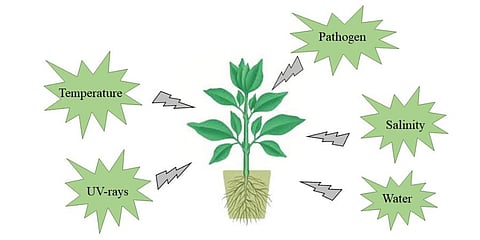

KASARAGOD: Plants have memory and can transfer a part of their experiences to their first and even second-generation progenies, finds research done by the Department of Plant Science in the Central University of Kerala.
Plants do not have brains to remember but they do know how to write their experiences in the form of a code language, said assistant professor Dr Jasmine M Shah. The research -- published in the international journal, Plant Molecular Biology Reporter -- was a part of the PhD work of her student Joyous T Joseph.
The research found that plants exhibited memory of being under bacterial infection and this information was found in the second generation progenies. Dr Shah and Dr Joseph infected a model plant called Arabidopsis thaliana with Agrobacterium tumefacians, a bacteria that causes crown gall disease.
"Agrobacterium is also used as a tool for generating genetically modified (GM) crops and our group is the first to report Agrobacterium-induced memory in plants," said Dr Shah.
There are previous reports of a few other pathogenic bacteria inducing memory in the 'defence DNA' of plants, she said. "In our research, the parent plant's experience of being infected by bacteria was seen in the 'DNA-repairing gene' of the first and second generation progenies," she said.
This memory is called 'epigenetic memory', which means the experiences may not cause genetic mutations in the parent plant yet the memory is heritable or transferred to the next generation, she said.
Environmental factors such as stress-induced by diseases, drought, or starvation can leave epigenetic marks on the DNA, which are heritable, she said.
This observation in plants is comparable to the parental trauma in humans, she said. In 2015, a research team of New York's Mount Sinai Hospital found that Holocaust victims were capable of transferring their traumatic experience to their children's DNA.
In plants, such epigenetic memory could make the plants more immune or well-prepared to face similar stress, and understanding the code language will certainly aid in enhancing the agronomic quality of plants.